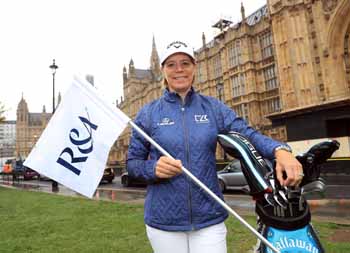The government now knows that golf is good for you
A project that was set up to study the health benefits of playing golf has delivered such compelling conclusions that the UK government is showing interest – and this could have a huge impact on participation figures.
There is now concrete evidence that playing golf has significant physical health and wellness benefits. In research led by the University of Edinburgh and published in the British Journal of Sports Medicine last year, findings reveal that playing golf is associated with a range of physical and mental health benefits, and further collaborative efforts to improve access for the sport are needed.
The research came about thanks to the creation of the ‘Golf and Health Project’, which is studying the varied health and wellbeing benefits of golf, considering any risks, and publishing their results in international, peer-reviewed journals.
The project works independently but with the support of the World Golf Foundation, of which CEO Steve Mona has a regular column in The Golf Business, and its members include The R&A, the European Tour, the USGA, the Masters Tournament and the Ryder Cup Development Trust.

Golf and Health ambassador Annika Sorenstam at the first International Congress on Golf and Health in London
It’s clearly having an impact because the first ‘International Congress on Golf and Health’ has taken place in Westminster, featuring MPs, golfers, representatives from golfing bodies and health experts.
The project’s global ambassador, Annika Sorenstam, was in attendance and said: “Golf is great for the health of people of all ages – it benefits those playing the sport and even tournament spectators. Given the health benefits, we must work together to make golf more accessible.”
Steve Brine MP, minister for Public Health and Primary Care, who has also been named ‘Parliamentary Golfer of the Year‘ in recognition of his work to champion the health benefits of golf in government, agrees: “Golf can be a great way to stay active and there’s growing evidence about ways the sport can help those living with long term conditions such as dementia,” he said.
Professor Fiona Bull from the World Health Organization (WHO), added: “I took up golf in my 30s but thought it was a very technical, expensive and elitist sport. Thankfully, a six-week ‘come and try course’ showed me how easy it was to enjoy golf as a beginner and how active playing nine holes can be.”
And Anthony Blackburn, the man behind Golf in Society, a project which delivers person-centred golf sessions for people with chronic illnesses, stated: “To know that getting involved in golf is being endorsed by WHO, our health ministers and leading academics is music to my ears.”















Is there a grant to pay for your membership if it is that good for you.